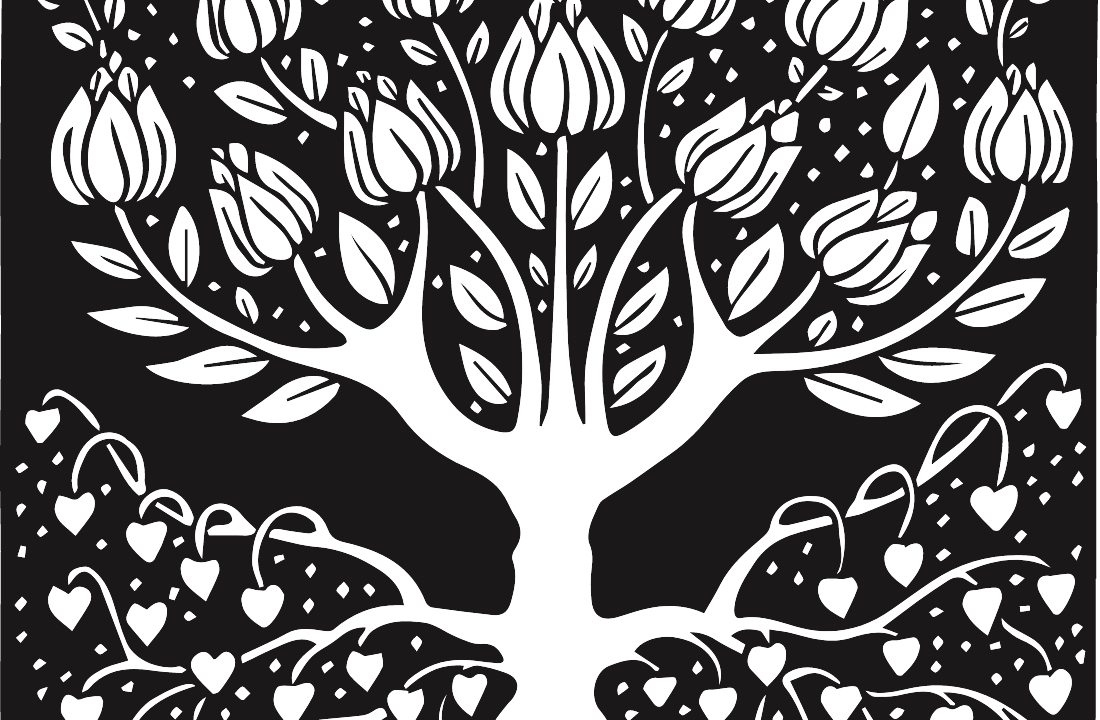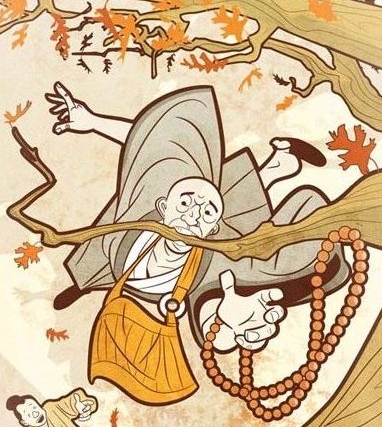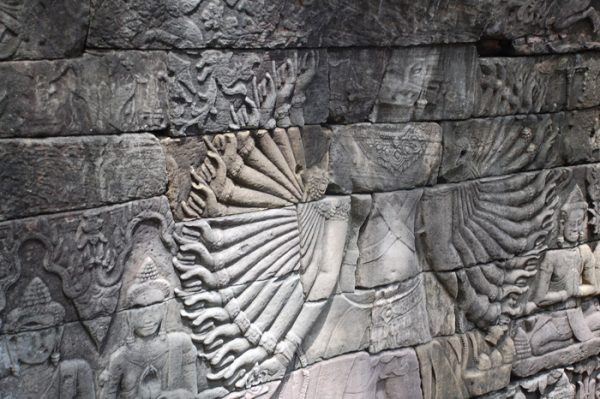Gateless Gate, Case 19
Joshu asked Nansen, “What is the Way?”
“Ordinary mind is the Way,” Nansen replied.
“Shall I try to seek after it?” Joshu asked.
“If you try for it, you will become separated from it,” responded Nansen.
How can I know the Way unless I try for it?” persisted Joshu.
Nansen said, “The Way is not a matter of knowing or not knowing. Knowing is delusion; not knowing is confusion. When you have really reached the true Way beyond doubt, you will find it as vast and boundless as outer space. How can it be talked about on the level of right and wrong?”
With those words, Joshu came to a sudden realization.
I want to begin by introducing you to a gentleman whose writings I recently came across, S. Brian Willson. Brian was a young Air Force lieutenant in Vietnam, assigned to provide airbase security. He was a strong proponent of our strategies in the war, including calls for massive bombing and nuclear defoliation. For some reason, Brian was asked to go out to assess the extent of damage to a village that had been bombed with napalm, although that wasn’t part of his security job. He arrived shortly after the bombing had occurred. There in the smoldering ruins, lay the charred bodies of the villagers. Many were women and children, and while most were already dead, the cries of those writhing blackened husks who were still alive pierced the air.
At that moment, something extraordinary happened. Brian broke down and his life was changed forever. Now, that may not sound extraordinary. You may reason that any human being would have done so under those circumstances. However, Brian was not any human being. To start with, he was a soldier, an officer, a patriot, and a proponent of the war. He was not supposed to feel for the lives of these “gooks,” who were not just the enemy, but a subhuman race who deserved to die for opposing the “might and right” of the United States. Furthermore, Brian had embraced the American dream and the American ethos. He was a young man on his way up, coming from the lower middle class and aspiring to rise in society. Fighting in a war and killing to protect our way of life has long been considered a part of that process of gaining stature in our society.
The South Vietnamese officer who was accompanying Brian was completely baffled by his retching and tearful reaction. What was there in this scene to cause that? Just some dead villagers, nothing more. Brian, too, should have reacted with impassivity. It was how he was conditioned and trained to react, not just by his military training, but by the conditioning that our nation’s sense of manifest destiny and its inherent racism subtly imposes on us all. What happened in that moment to undo all of the years of preparation for his role in that war? Brian should have numbed out. He should have repressed the reality, but instead he saw clearly, perceiving with what I believe was the “ordinary mind” that Nansen spoke of!
You see, ordinary mind is nothing special, and yet it is extraordinary. It is seeing what is right before our eyes with clarity. We see what is there, no more, no less. The blinders of our conditioning, our desires, our attachments, our beliefs, our self-centeredness, our self-righteousness, have all been lifted. We awake from the numbness of the trance state which we normally exist in. There is nothing, no veil or barrier, to protect us from the onrushing force of this very reality. And even more importantly, nothing to separate us from anything. In the moment of perceiving with ordinary mind, those burned bodies are not other, not apart from me, they are me – my body lying completely disfigured in the mud of that village.
I have never been in a war, but I think I can understand the process of numbing out from the time in my life when I was a farmer and a hunter. In order to kill a beautiful animal, whether it is a young calf that is going to the slaughterhouse to become veal, or a magnificent buck that we have in our rifle sights, we must diffuse the grim reality of the moment. We cannot see that being as it really is, as a vital part of the world, as part of us. We must create separation, we must objectify it in order to drag it into the truck, or to squeeze the trigger.
Brian Willson went on to be a peace activist after he returned from Vietnam. He later lost his legs when he was run over by a train carrying arms to the Contras, which he was trying to block. But neither that tragedy nor the decades that have passed since Vietnam have dimmed his vision. As I read his writing, it seems that he still sees with the clarity of ordinary mind. Today, he sees the endless violence that our culture and economy, driven by the greed of vast multinational corporations, is spreading across the globe. That greed manifests itself in many forms. It manifests as we engage in conflict after conflict around the world. It manifests in our consumerism, our ever expanding consumption of vast mountains of goods that serve little or no actual purpose outside of feeding our media-fueled addiction.
Living in this culture, we are all hungry ghosts who are endlessly driven by our desire for more and more things, endlessly trying to satisfy a hunger that cannot be satisfied. Tragically, it manifests in our willingness to sacrifice species diversity and even the very survival of our planet, just as long as as the endless buffet laid out for us at our local shopping mall isn’t interrupted. We continue to exhaust our planet’s resources, its forests, its waters, and its soils, oblivious to the fact that our children and grandchildren will inherit a bankrupt world, if they inherit any world at all.
Ah, but you say to yourself, we aren’t the people who need to hear this message. After all, we’re Buddhists. We sit on cushions. We discuss precepts. We are conscious about our food. We are not the problem. We are nice, kind, gentle people. That may be so, but is there another reality, the reality that our Buddhism can function as yet another veil, another rose-colored lens that obscures the truth.
If we truly allow ourselves to open to the realities of global corporate greed, of war after war fought to protect our economy, of the destruction of our planet, and perhaps of all life in this world, we are faced with a truth that is almost impossible to bear. We find ourselves seized by despair and hopelessness. What can I do? The problems are so great, and there are no clear solutions. Overwhelmed, we retreat from the stark clarity of ordinary mind to the safety and comfort of Buddhist mind. In Buddhist mind, we can just focus on our practice. We can sit contentedly on our cushions and shake our heads at the thoughtless, careless lives of our fellow Americans, secretly smug in the knowledge that we are not like them. We are awake. We are spiritual.
What is Brian S. Willson doing today? In his seventies, he is riding around the northwest on a hand cycle. More importantly, he is living in the perpetual discomfort of ordinary mind. Ordinary mind isn’t a state of spiritual bliss. It is a state of intimate connection, of living deeply in the reality of this moment. Today, Brian is speaking the truth he sees, as well as writing about it. He is working actively to reduce his negative impact on the world, he is growing his food and working to leave the grid completely. He is trying actively, every day, to avoid participating in the orgy of consumption.
If we want to manifest the Dharma, if we want to live as Nansen and Joshu did, if we want to be really awake and experience the vast boundless space of ordinary mind, then we must follow Joshu’s teaching in another koan, we must avoid “picking and choosing”. We must be open to reality, no matter how uncomfortable that makes us, and we must not allow the despair that inevitably arises to overwhelm us. We must act. Every day, we are walking among the charred bodies of the dying. There is no place for philosophizing, for rationalizing, for catastrophizing, for blocking or numbing out, for forgetting. We cannot look the other way. We must act. We must apply bandages and ointments. We must cradle the dying in our arms, give them a sip of water, and offer them solace.
That is how we must act, that is how we must deal with the diseases of the human spirit that our culture is spreading across the globe. We must act decisively and without hesitation. That is the way of the Bodhisattva. If you have come to Zen for peace, to escape the troubles of the world, to bask in self-righteousness, to be a Buddhist, then you have come to the wrong place. If, on the other hand, you want to roll up your sleeves and walk out into the muddy village, ready to do whatever you can, then you are in the right place.
Zen is action, action that arises from being fully awake and fully engaged. Ours is a Mahayana practice, a practice that must engage with the suffering of all beings. I think that zazen does change the world, but one of the primary ways it does so is by changing us, by helping us to wake up and take action. When we awaken from our dream and begin to see reality as it truly is in the light of day, we can act.
How you should act, how much you need to do is for you to answer. Let me propose a simple test. Close your eyes and imagine you are speaking with your relatives in a future generation, the generation that is here when life on earth is no longer viable. There in front of you is your grandchild or great grandchild, your grandniece or grandnephew. They look at you as their emaciated, dehydrated bodies gasp for air and ask, what did you do? What did you do in 2014, when we still had polar bears and glaciers, when you could walk outside and breathe the air without a respirator, when the trees hadn’t died from the drought, and when you could drink water freely, right out of the tap? What did you do to prevent the catastrophe? How will you answer? Will you be able to look them in the eye and say that you did enough?



